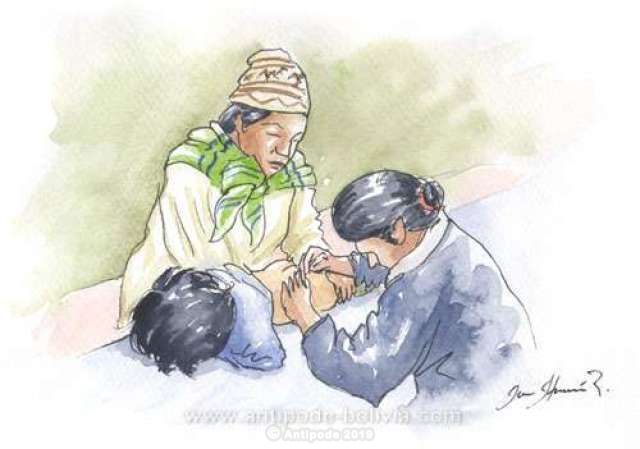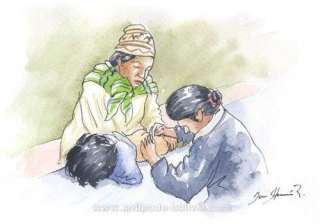

Public health in Bolivia
Access to health care in Bolivia is still fragile; 37.9% of Bolivian people do not have access to any health facility, and health care spendings barely represent 4.8% of the country’s GDP.
Life expectancy at birth is 66 years for men and 70 for women
(as a comparison, in France, life expectancy is 78 years for men and 81 for
women).
About one person in two living in rural area would have never
seen a doctor (coming from a Medical University), due to the very low number of
physicians per capita, which is 1.3 for 1000.
Moreover, there is a real offset in the Bolivian Medical System.
Most of the extra-urban population is likely to call a curandero in case of necessity, king of healer providing from
pre-Hispanic traditions, mixing wizardry, superstitions and medical plants,
rather than a doctor coming from a university.
Indeed, apart from the financial aspect, which immediately makes
inaccessible its facilities, this last one will be, most of the time, white,
speaking exclusively Spanish and not the autochthon languages of the
populations living in rural areas (quechua, Aymara, guarani, chiquito…) and
from a very different culture. And sometimes, the relationship between this
doctor is marred by racism or disregard. For all these reasons, the access to a
non-traditional medicine is limited.
On another part, a basic social security system has been created
by the government, el seguro basico,
but the importance of informal work considerably reduces the number of persons
who are effectively insured by this social security, normally payed by the
employer.
One of the areas where health is the most alarming is the sexual health;
adolescent pregnancies are numerous and only 61% of the female national
population uses contraceptive methods.
Another reason for these numerous
diseases that maintain a high rate of child mortality (pneumonias, diarrhea,
etc.) is the lack of water supplies and sanitation.



